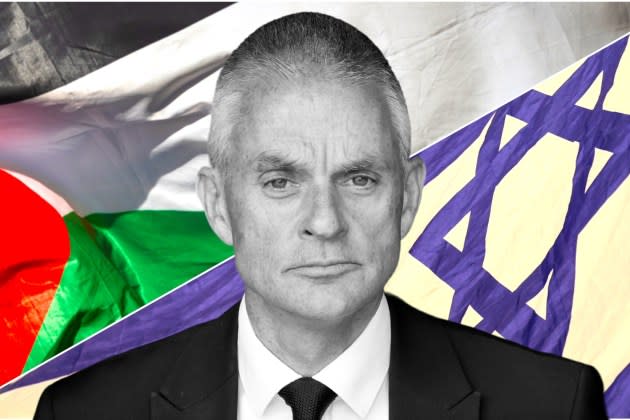BBC Says AI Study Accusing It Of “Pattern Of Bias” Against Israel Was “Unreliable & Unproven”

EXCLUSIVE: The BBC has hit back against a report that accused the British broadcaster of showing a “deeply worrying pattern of bias” against Israel in its coverage of conflict in the Middle East.
Undertaken by British attorney Trevor Asserson, the September study claimed that the BBC breached editorial rules on impartiality more than 1,500 times in the four months that followed the Hamas atrocities of October 7.
More from Deadline
The report, which was splashed on the front of The Sunday Telegraph newspaper, arrived at this conclusion after using AI to analyze nine million words of BBC output. Researchers claimed that the BBC repeatedly downplayed terrorism and painted Israel as a militaristic and aggressive nation.
It concluded: “The findings reveal a deeply worrying pattern of bias and multiple breaches by the BBC of its own editorial guidelines on impartiality, fairness and establishing the truth.”
Weeks on from Asserson publishing his findings, the BBC has responded by discrediting the report. “We do not think that its methodology leads to reliable conclusions,” the corporation said in a statement.
The BBC continued: “We do not accept that impartiality can be assessed using ‘sympathy’; nor by quantifying daily coverage of events or counting words.
“We believe the use of AI to measure impartiality in this way is unreliable and unproven. The methods used in the report fail to take account of basic journalistic principles and practice, and often rely on selective interpretations and incomplete evidence.
“We do not see any new evidence to suggest we have breached our obligations for due impartiality and accuracy during our coverage of this highly complex, challenging and polarising conflict.”
Deadline has contacted a representative of Asserson for comment.
The BBC has become increasingly strident with critics of its coverage of the Israel-Gaza crisis. In a blog post earlier this month, BBC News CEO Deborah Turness accused detractors of being stuck in social media bubbles.
Turness acknowledged that the BBC has made mistakes and said she will always listen to the corporation’s “harshest critics,” but she was clear that impartiality means audiences will be served reporting that challenges their opinions.
“BBC News does not and cannot reflect any single world view. In this war, we cannot be a place where any side feels that their perspective prevails. Our job is to report fairly and impartially, to report without fear or favour,” she wrote.
Best of Deadline
Sign up for Deadline's Newsletter. For the latest news, follow us on Facebook, Twitter, and Instagram.
Solve the daily Crossword

